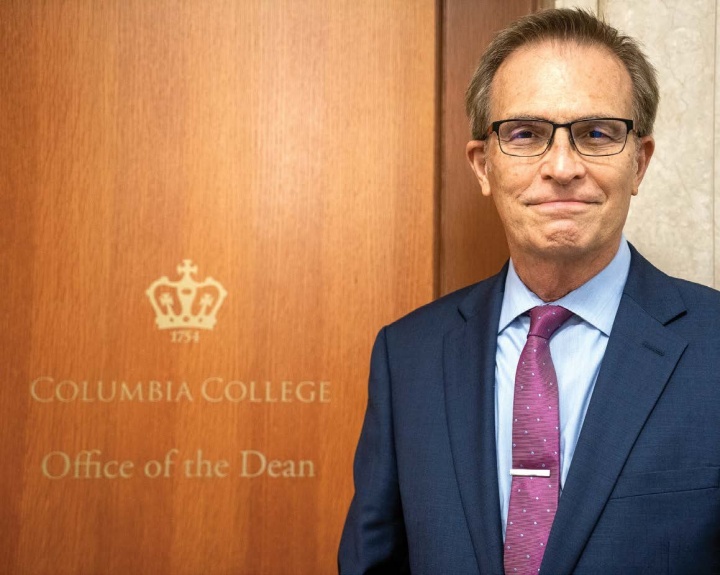This is my penultimate message as dean for CCT.
Columbia College | Columbia University in the City of New York
This is my penultimate message as dean for CCT.

BARBARA ALPER
I’ve decided to share with you what I told them.
To start, I’ve recognized that people are the College’s and University’s most important resource. Not our impressive and growing endowment, not the grand buildings on our magnificent campus, not our most favorable location in this great city. People. Faculty, staff, alumni and, yes, students. I’ve seen that by valuing people, they are encouraged and empowered to then use Columbia’s other resources in the most effective way possible, through their ideas, initiative, dedication and creativity. This leads to the greatest achievements possible, and benefits us all. I suppose I knew that already, but as dean I experienced it on a much greater scale than I had ever encountered, and it became more than an inclination; it became a deep-seated belief.
I came into this role as a chemistry professor whose knowledge was usually adequate to at least get a start on figuring things out in my everyday professional life. But upon becoming dean, I saw within days that the role was too big and required knowledge of too many kinds to depend so much on one’s individual knowledge. And so I learned to seek out advisors. I devoted my efforts to finding and hiring people smarter than I, and then I listened to them, which expanded my ability to address the many challenges the College faces. In talking to the thousands of people I have encountered as dean, I’ve learned that wherever you are, there is certainly someone who knows more than you do, at least about something. Ask people questions and make sure to listen to them. Over time it becomes clear who has the knowledge that can help you.
In an organization as large as Columbia College, with hundreds of faculty and professional staff, thousands of students, and tens of thousands of alumni and friends, every success, large or small, is the product of many people’s efforts. The most meaningful and rewarding successes are collective ones, in which many people contribute ideas and focus their energy toward a shared goal. We did that a lot in the College over the last decade. But even as we celebrated successes, I understood that we should strive to improve, to aim higher, to do better — to have aspirations as a way to continue that shared purpose. That awareness came from a pretty good advisor: Long ago, when my age was measured in single digits, my mother would almost daily recite to me this advice, “Good, better, best, never let it rest, ’til your good is better and your better is best.” It’s a simple saying, yet I learned its real value by reciting it to myself and to others in the College so often that it became a theme for us all. I think my mother would have been pleased to know that she made her own contribution to the College.
A clever person, and there are many clever persons reading this, will realize that all of these approaches to being dean reflect the praxis of Beginner’s Mind, the openness to possibilities that I have championed with every single class and every single student during my time as dean.
I hope that at least a few of these things I’ve learned will be adopted by our students in their lives. I hope they are as blessed with opportunities as meaningful and substantial as I have had with the opportunity to lead Columbia College. What great good fortune it has been to be the dean of a school with such distinction. But we all understand that personal good fortune is not a permanent state, and so it is that I near the end of my tenure. The mindfulness teacher Thich Nhat Hanh advised us to cherish the journey, not the destination, when he wrote, “There is no way to happiness, happiness is the way.” I have had much happiness on my way every day since September 2, 2011, when I first became dean. I thank all of you for contributing to that. May you find happiness on the way, too.

James J. Valentini
Dean

Published three times a year by Columbia College for alumni, students, faculty, parents and friends.
Columbia Alumni Center
622 W. 113th St., MC 4530, 6th Fl.
New York, NY 10025
212-851-7852
cct@columbia.edu

Columbia Alumni Center
622 W. 113th St., MC 4530, 4th Fl.
New York, NY 10025
212-851-7488
ccalumni@columbia.edu